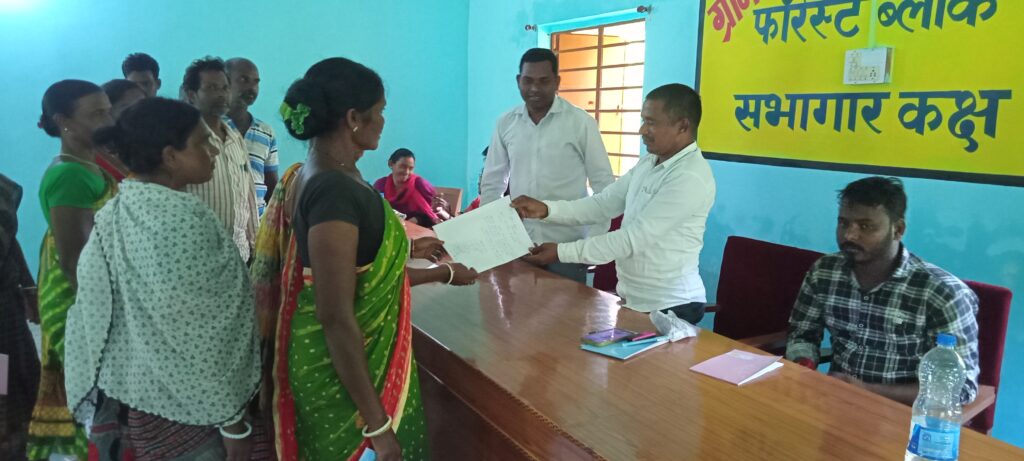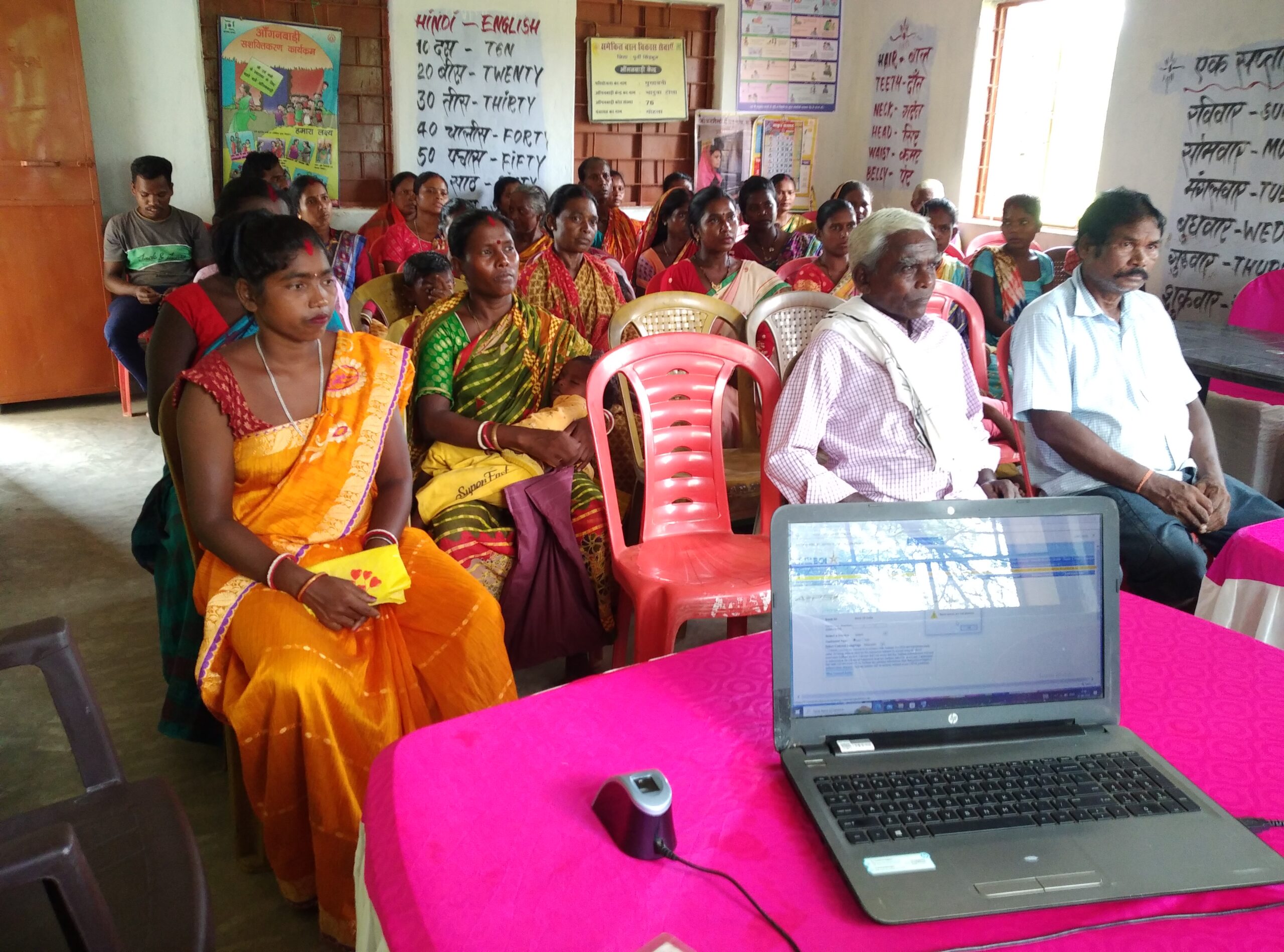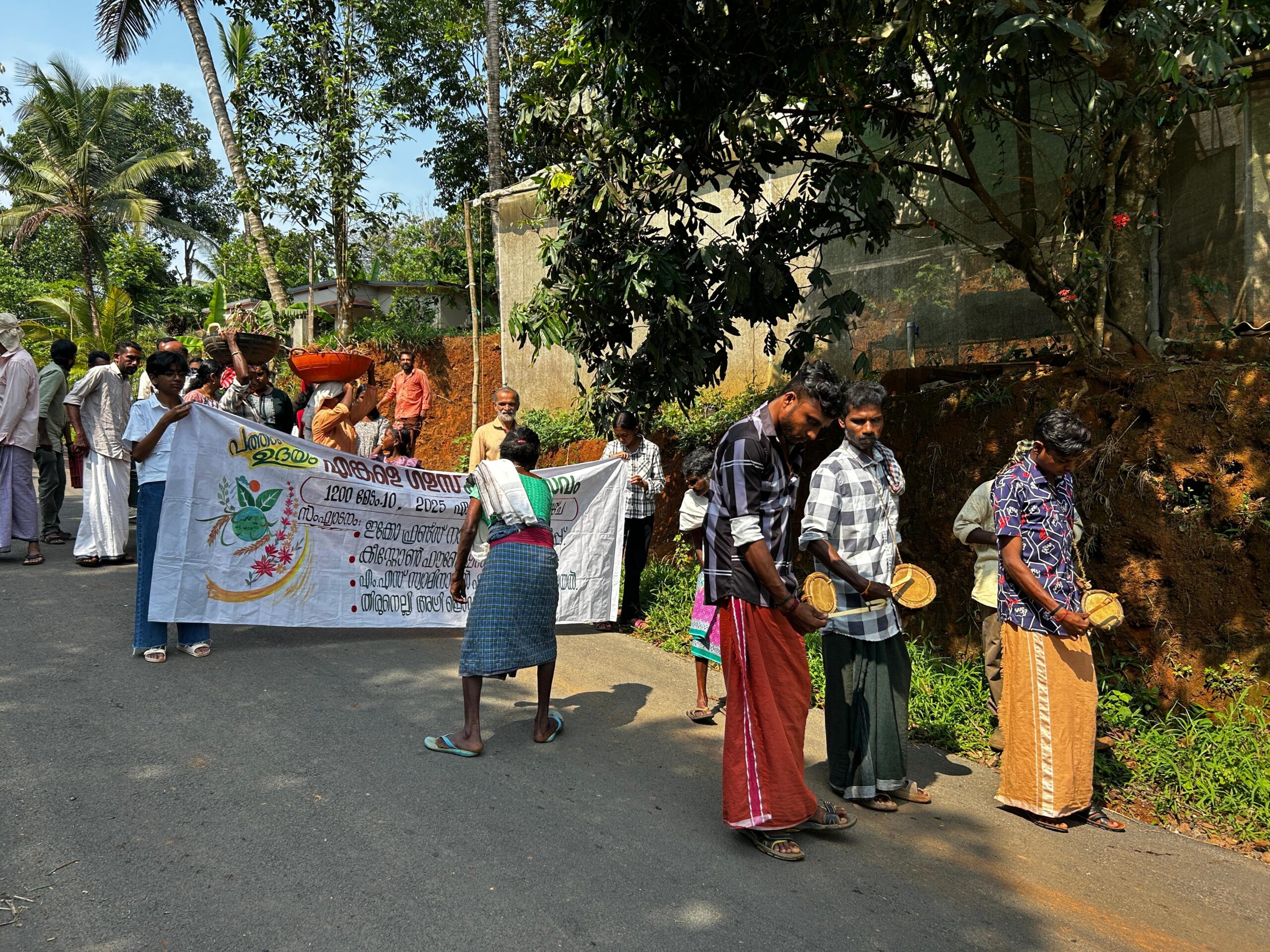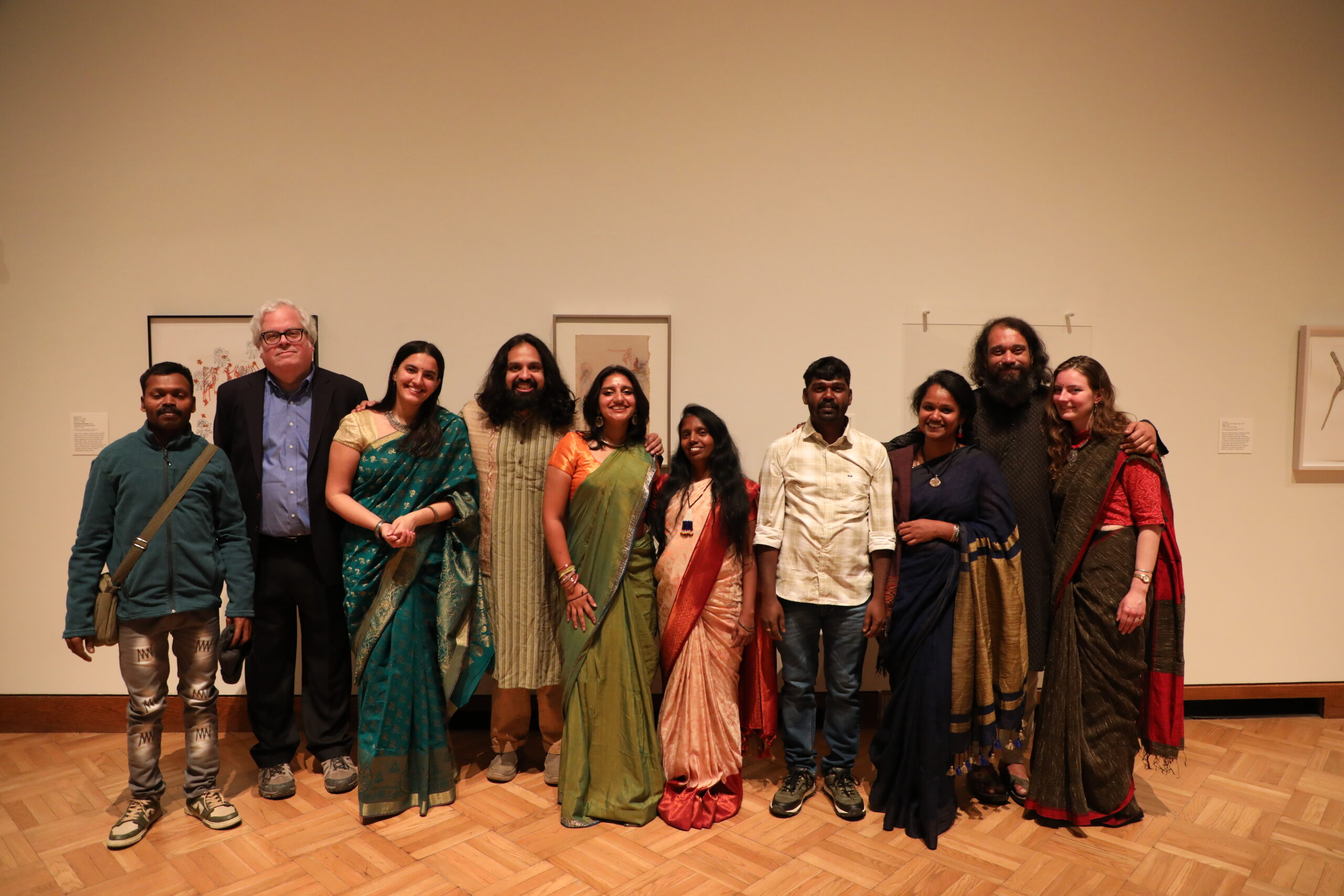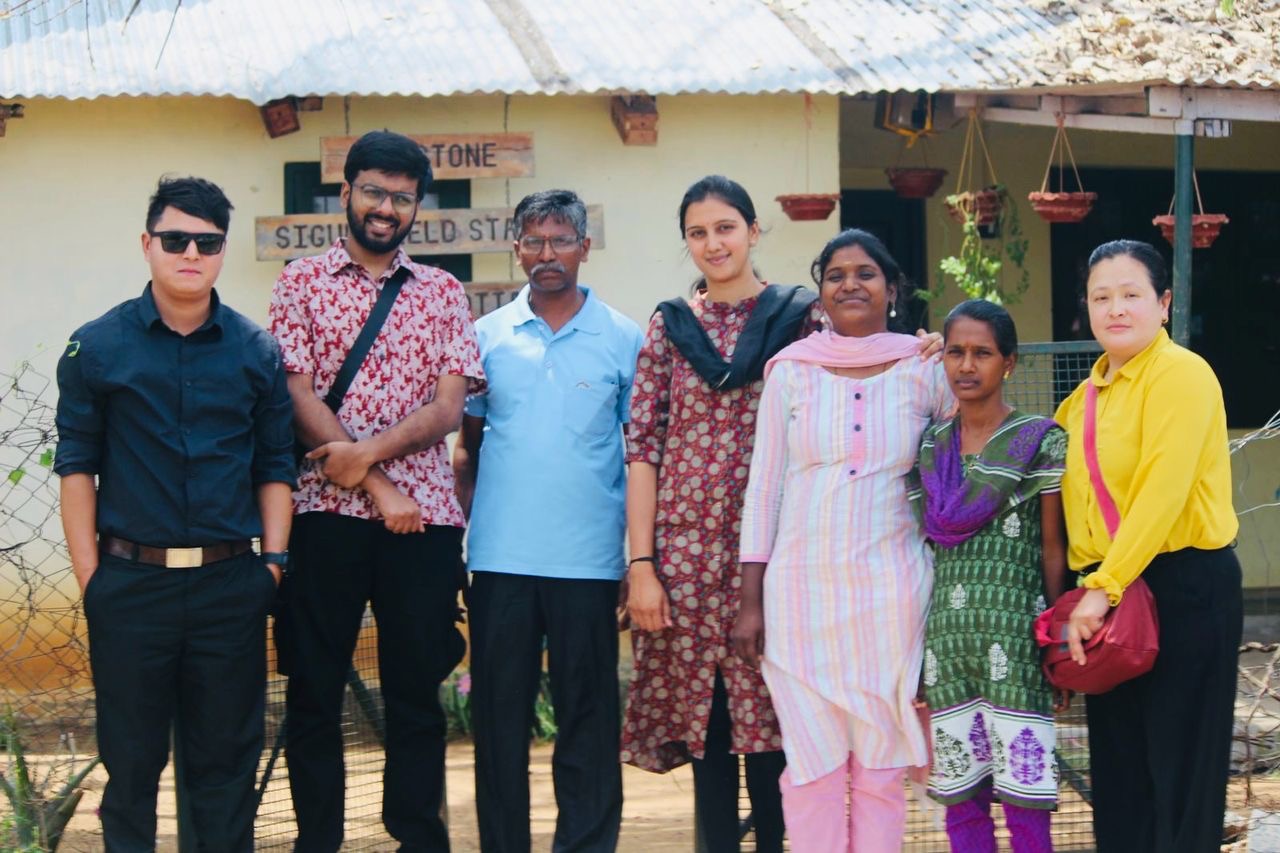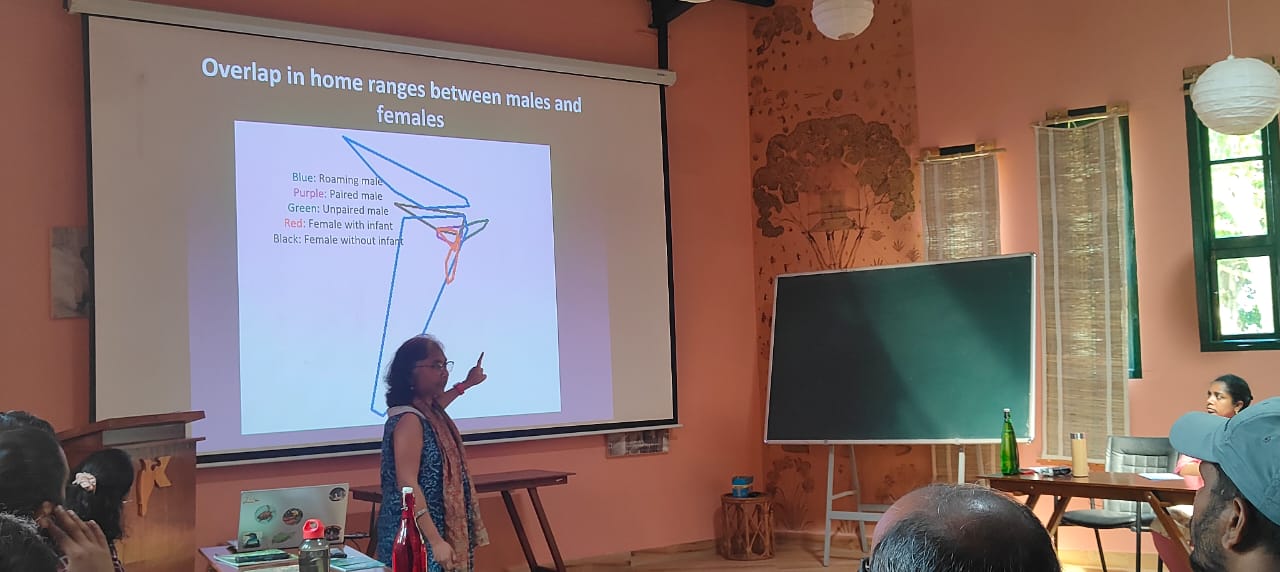Header photo credit: Kapra Mahali
Area Level Stakeholder Meeting in Tambajhuri
By Baby Patar and Jagabandhu Sanda
A stakeholder meeting was held on 24th August 2024 at the Panchayat building, Forest Block, Tambajuri in Musabani Block, East Singhbhum, Jharkhand. The meeting was organized by Baby Patar (Community resource person) and Jagabandhu Sanda (Consultant Eastern India Project). The meeting involved a total of 47 participants which included community members, youth and women’s groups from Tambajuri village and village head Tulam Banra participated in this meeting. The participants were from 6 villages -Patkita, Roam, Sohda, Samaydih, Tambajuri, and Pathargora, with a high participation of women.
The facilitation and discussions during the meeting were conducted in local languages – Santhali and Bengali. This approach allowed for the full inclusion of all participants, particularly the women, many of whom felt encouraged to engage actively in the discussions.
Key resource persons presented important information during the meeting. Parma Banra, Mukhiya of Forest Block, spoke about various Panchayat schemes, including horticulture, water and sanitation, and the Har Ghar Nal Yojna. He urged villagers to take part in Gram Sabha meetings and community activities. Alkesh Kumar, Branch Manager of SBI Musabani, introduced financial schemes like Kisan Credit Cards and agricultural loans, offering to attend future village meetings to inform more people about banking services. Maheshwar Hansda from the Forest Department, Musabani Range, explained the Forest Rights Act (FRA) and the processes for applying for Individual and Community Forest Rights (IFR and CFR).
Dilip Kumar Giri, the Block Agriculture Officer (BAO) of Musabani, emphasized organic farming, natural farming techniques, and the use of local seed varieties. He shared his thoughts: “I will request the government to provide traditional seeds to farmers. Currently, the government only supplies HYV (High Yielding Variety) and hybrid seeds, which we are compelled to use.” He added that even if the yields may be lower compared to modern methods, farmers should adopt natural farming practices to protect the soil.
Bishwanath Murmu, Block Programme Officer (BPO) of MGNREGA (Mahatma Gandhi National Rural Employment Guarantee Scheme), detailed the schemes available under MGNREGA particularly for the construction of water bodies and cattle sheds, ensuring villagers could benefit from these facilities.
Panmoni Tudu, an Anganwadi Worker from Patkita, discussed the Integrated Child Development Services (ICDS) for women and infants. She requested villagers to regularly bring their infants to the Angan Wadi and spoke about the Didi Badi program aimed at improving nutritional diversity.
The meeting touched on several critical topics, including organic and natural farming practices, water security, forest rights and protection, and the impacts of climate change. The participants agreed on the importance of forest conservation, particularly in light of climate change, and decided to intensify forest protection efforts. Monthly meetings with Forest Protection Committees (FPCs) in all six villages would be organized by Baby Patar to ensure ongoing conservation efforts.
Meeting Outcomes
Immediate outcomes of the meeting included the implementation of the Jal Nal Yojna, with water tanks for household supply to be set up within a week and a Jal Samiti to be formed. Inactive Jal Sahiyas were also urged to begin water testing, with plans for training under the Eastern India project. Several memorandums were submitted to key authorities, including requests for horticulture cultivation, Kisan Credit Cards for 20 individuals, CFR applications, traditional oilseeds and vegetable seeds, and water tanks and cattle sheds for 10 people.
Feedback from participants was positive. Sundari Hembram from Somaydih expressed that it was her first time visiting the Panchayat office, where she gained valuable knowledge. Surajmoni Bhumij from Patkita mentioned that she “learned about government schemes related to child welfare, farming, and banking, and she planned to share this information with the women’s committee”.
The meeting concluded with villagers expressing their commitment to raising awareness within their communities. They emphasized the importance of sharing what they had learned during the session with others, particularly through Gram Sabha meetings, where they plan to convey the information to ensure collective progress.
The meeting successfully disseminated important information on government schemes, forest rights, and organic farming, while also addressing water security and forest protection. Immediate steps were taken to address water supply and forest conservation, with further initiatives planned for the near future.
Area Level Stakeholder Meeting in Bhadua
By Kapra Mahali and Jagabandhu Sanda
On 24th August 2024, a stakeholder meeting was held at the Old Primary School in Bhadua, Musabani Block, East Singhbhum, Jharkhand. The meeting, organized by Kapra Mahali (Community resource person), Aklu Mahali, and Jagabandhu Sanda (Consultant Eastern India Project), brought together 69 participants, from Bhadua, Vikrampur, Gohla, Katsakra, and Bakra villages. The participants were mostly women, with significant participation from village heads, youth groups, and women’s groups.
During the meeting, Parvat Hansda, Mukhiya of Gohla Gram Panchayat highlighted various government schemes such as horticulture initiatives, water and sanitation programs, pipeline projects, and Har Ghar Nal Yojna. He encouraged villagers to take part in community activities like Gram Sabha meetings and urged them to participate in the plantation of fruit-bearing trees to enhance livelihoods. To increase involvement, especially among women and youth, he requested the Keystone fellows to take responsibility of widespread tree planting in the coming year.
Romay Mahali, Branch Manager of BOI Musabani, provided an overview of the bank’s schemes, including the Kisan Credit Card (KCC), agricultural loans, and the importance of linking Aadhar and PAN cards. Dilip Kumar Giri, the Block Agriculture Officer (BAO) of Musabani, spoke about the benefits of organic farming, crop insurance, and the importance of using traditional seed varieties. Bishwanath Murmu, Block Programme Officer (BPO) of MGNREGA, explained the various benefits under MGNREGA, including job cards and work opportunities such as building water bodies and cattle sheds.
Tanushree Paul, Block Technology Manager (BTM), praised the local seed bank’s efforts to preserve traditional seeds and encouraged the continued practice of organic farming using natural fertilizers like vermicompost. She acknowledged the crucial role of Keystone Foundation in supporting these agricultural practices. Jobarani Paul, MGNREGA Employment Officer, also addressed the meeting, discussing employment issues related to MGNREGA and other government support mechanisms.
Participants expressed their thoughts, with Basanti Hansda from Bhadua, Gohla Panchayat, sharing her newfound awareness of the harmful effects of chemical fertilizers and pesticides on the soil. She committed to avoiding their use in her fields and pledged to discourage others from using them as well.
Meeting Outcomes
The meeting concluded with the submission of memorandums to various officials, including requests for horticulture cultivation support, KCC applications, traditional seed distribution, and assistance with water tanks and cattle sheds for community members. On-the-spot results included the submission of online KCC applications, 23 participants registering for bank life insurance, and 12 farmers applying for crop insurance. Active service providers such as Jalsahiya, school teachers, and Anganwadi workers were also engaged during the meeting.
The key discussions revolved around promoting organic and natural farming practices, water security, forest rights and protection, and the impacts of climate change. The need for stronger forest conservation efforts was emphasized, with Forest Protection Committees (FPCs) already active in the villages of Gohla, Bhadua, and Vikrampur. The meeting successfully addressed the community’s concerns and set actionable steps for the future.
